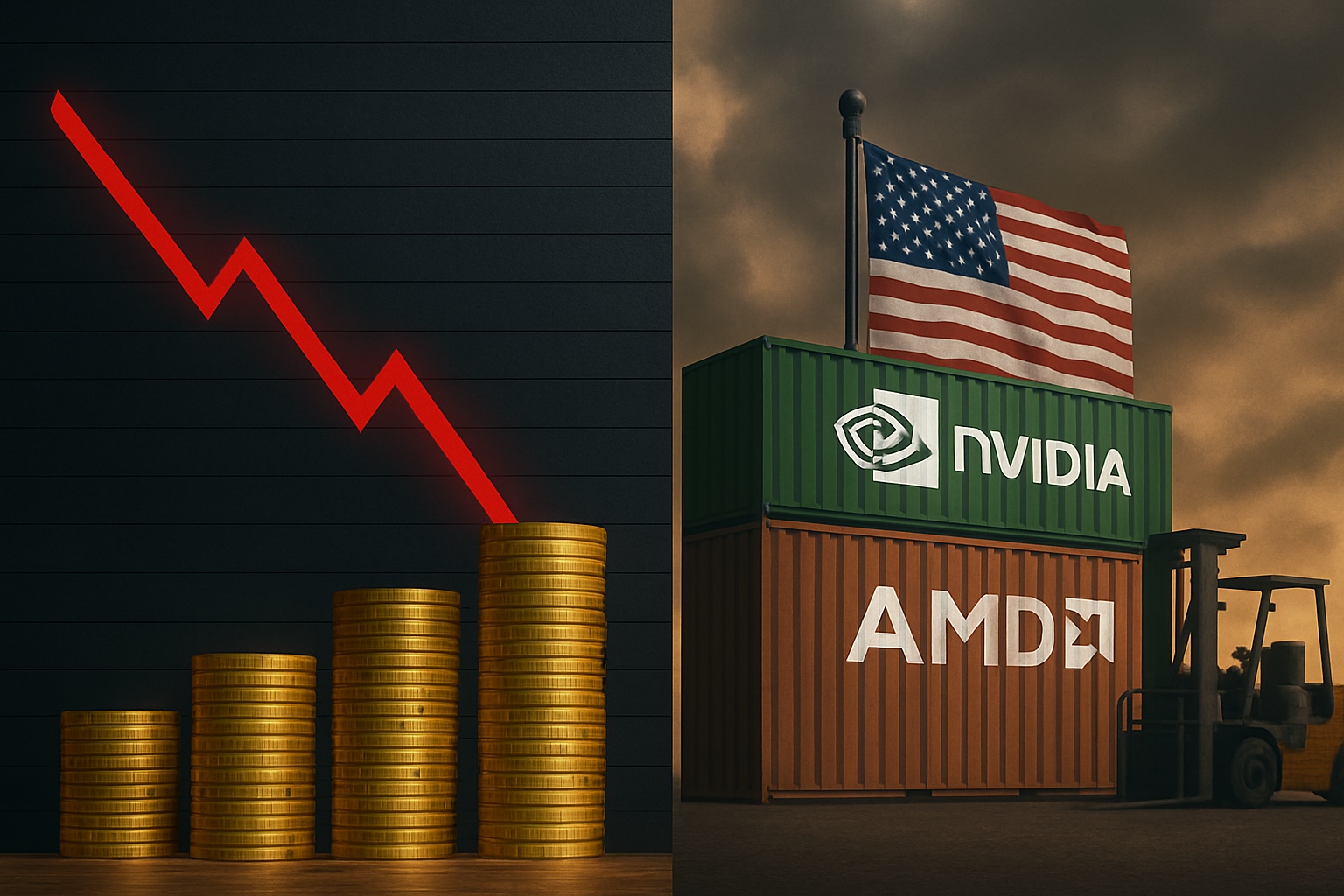Good morning. The recent headlines concerning a new 15% tariff on Nvidia and AMD’s revenues from China have understandably sent ripples of concern through the investment community.
Market Analysis
First, let’s establish the facts. The proposed 15% tariff directly targets revenues from China, a significant market for both semiconductor giants. Based on recent financial disclosures, China accounts for approximately 24% of AMD’s and 13% of Nvidia’s annual revenue. This is not an insignificant figure, and the market’s immediate negative reaction reflects this direct financial impact. A tariff acts as a tax, which will inevitably squeeze profit margins unless the cost is passed on or absorbed.
However, a wise investor knows to look beyond the immediate headline. This tariff, while a serious headwind, does not change the fundamental business of these companies overnight. Nvidia remains the dominant force in AI and graphics processing, and AMD continues to be a formidable competitor in high-performance computing. Their technological moats, research and development pipelines, and global reach are still intact. The core question we must ask is not ‘Will this hurt earnings?’ (it will), but rather, ‘Does this permanently damage the long-term value and competitive position of these companies?’
It’s also crucial to view this event within the broader market context. We’re seeing inflationary pressures in other sectors, with rising operational costs squeezing margins for businesses all around. This tells us that the market is currently grappling with multiple forms of risk, geopolitical risk in tech, and inflationary risk in consumer goods. This environment punishes speculation and rewards a disciplined, fundamentals-based approach. A sudden drop in a company’s stock price due to external factors like tariffs can, for the patient investor, present an opportunity to acquire a stake in a strong company at a more reasonable valuation.
So, what is the prudent path forward? For investors who already hold these stocks, the key is to avoid a knee-jerk reaction. Re-evaluate your original investment thesis. If you invested in NVDA or AMD for their long-term technological leadership, this news, while impactful, may not invalidate that core thesis. For those on the sidelines, this is a time for careful observation, not impulsive action. A market overreaction could create a potential entry point if the share prices fall below their intrinsic value, even after accounting for the new tariff landscape. Above all, this situation is a powerful reminder of the importance of diversification. Having a well-balanced portfolio across different sectors and geographies is the most effective shield against the inevitable shocks that come from a single stock, industry, or country.
Sonia is a market analyst dedicated to helping everyday investors make informed financial decisions.

